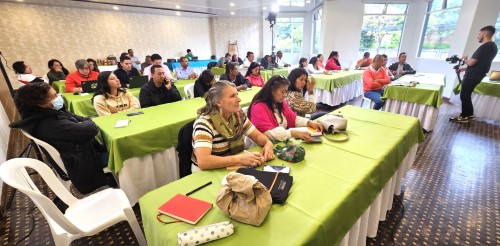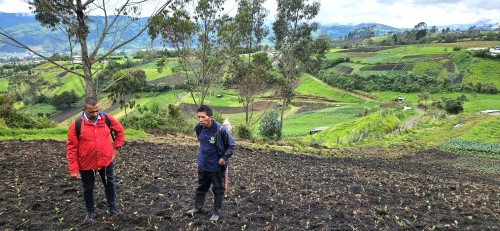Contact
Konstantinos Karantininis, Professor
Department of People and Society

A new Master programme enhances connections between regions and key food system actors.
CIRAD, Agrosavia, and university professors are collaboratively designing a two-semester specialization in sustainable food systems at the Faculty of Agrarian Sciences of the University of Nariño. Currently, no similar specialization - or Master programme - exists in Colombia. The initiative may also involve academics from the other three SASi territories, national universities such as the University of the Andes, and European universities working on food systems (like Swedish University of Agricultural Sciences, SLU and Wageningen University and Research, WUR). The program’s content and accreditation are under development, with the first full cohort expected in 2026. In the interim, a 12-hour introductory course will be offered in 2025 to raise awareness of the food systems approach, highlight key challenges, and introduce the forthcoming specialization.

Innovation champions and researchers come together to cultivate change in local food systems in Colombia. Photo: Marie-Hélène Dabat
The first training module of ICRA, Cosechando el Cambio, took place in Pasto (Nariño Centro) from March 31st to April 4th, bringing together organizations and private sector actors from all four SASi territories. Designed for pre-selected innovation champions in local food systems located in each territory), the module focused on strengthening and scaling up their business models. The workshop also fostered cross-territory collaboration through knowledge exchange and exploration of potential partnerships. ICRA support is rooted in the conviction that food systems transformation is already underway in these territories and should be nurtured and amplified.

Territorial exchange: discussion between a bio-input producer from Palmira and a conventional farmer from Nariño looking to transition to agroecology. Photo: Marie-Hélène Dabat
Konstantinos Karantininis, Professor
Department of People and Society